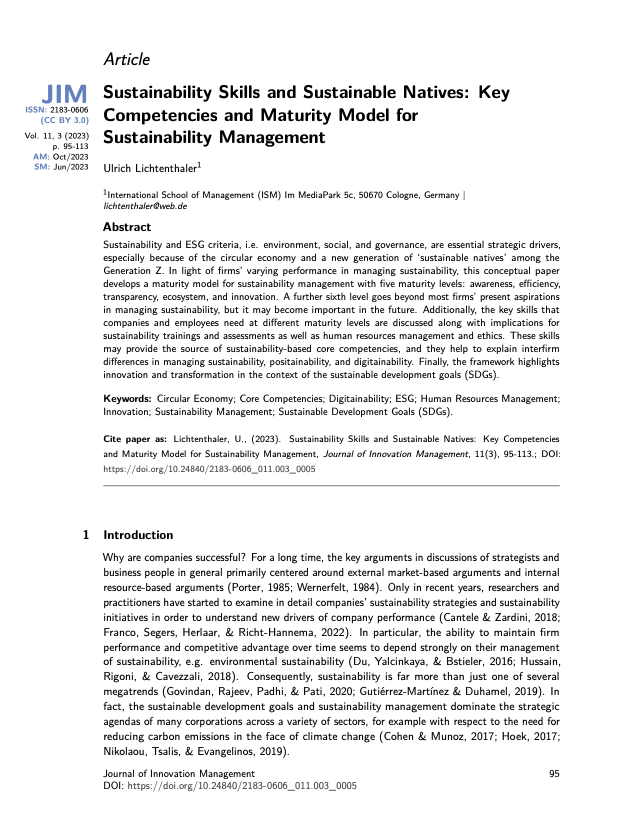Sustainability Skills and Sustainable Natives: Key Competencies and Maturity Model for Sustainability Management
Main Article Content
Abstract
Sustainability and ESG criteria, i.e. environment, social, and governance, are essential strategic drivers, especially because of the circular economy and a new generation of ‘sustainable natives’ among the Generation Z. In light of firms’ varying performance in managing sustainability, this conceptual paper develops a maturity model for sustainability management with five maturity levels: awareness, efficiency, transparency, ecosystem, and innovation. A further sixth level goes beyond most firms’ present aspirations in managing sustainability, but it may become important in the future. Additionally, the key skills that companies and employees need at different maturity levels are discussed along with implications for sustainability trainings and assessments as well as human resources management and ethics. These skills may provide the source of sustainability-based core competencies, and they help to explain interfirm differences in managing sustainability, positainability, and digitainability. Finally, the framework highlights innovation and transformation in the context of the sustainable development goals (SDGs).
Article Details
Authors who publish with this journal agree to the following terms:
- Authors retain copyright and grant the journal right of first publication with the work simultaneously licensed under a Creative Commons Attribution License that allows others to share the work with an acknowledgement of the work's authorship and initial publication in this journal.
- Authors are able to enter into separate, additional contractual arrangements for the non-exclusive distribution of the journal's published version of the work (e.g., post it to an institutional repository or publish it in a book), with an acknowledgement of its initial publication in this journal.
- Authors are permitted and encouraged to post their work online (e.g., in institutional repositories or on their website) prior to and during the submission process, as it can lead to productive exchanges, as well as earlier and greater citation of published work (See The Effect of Open Access).

